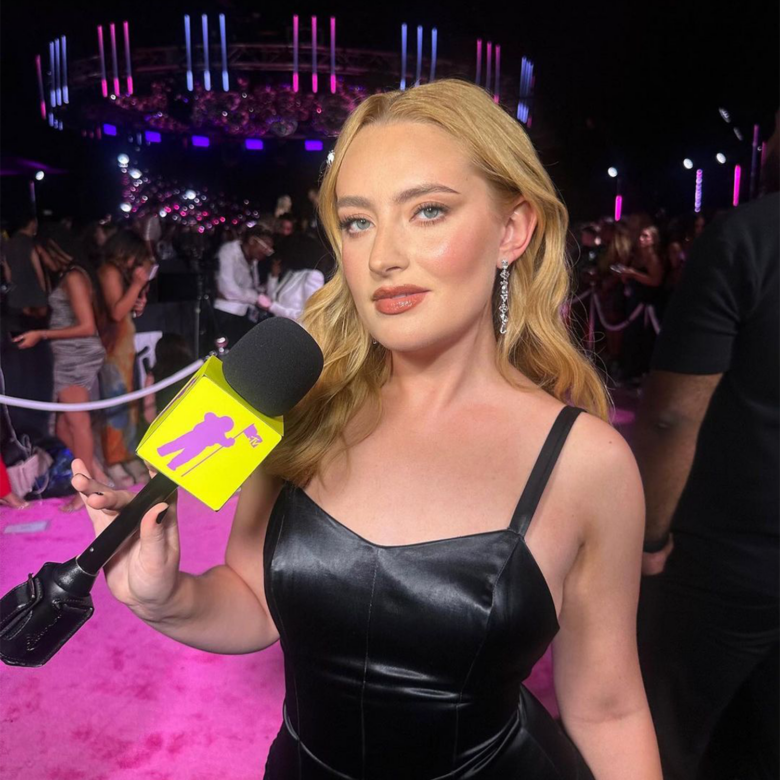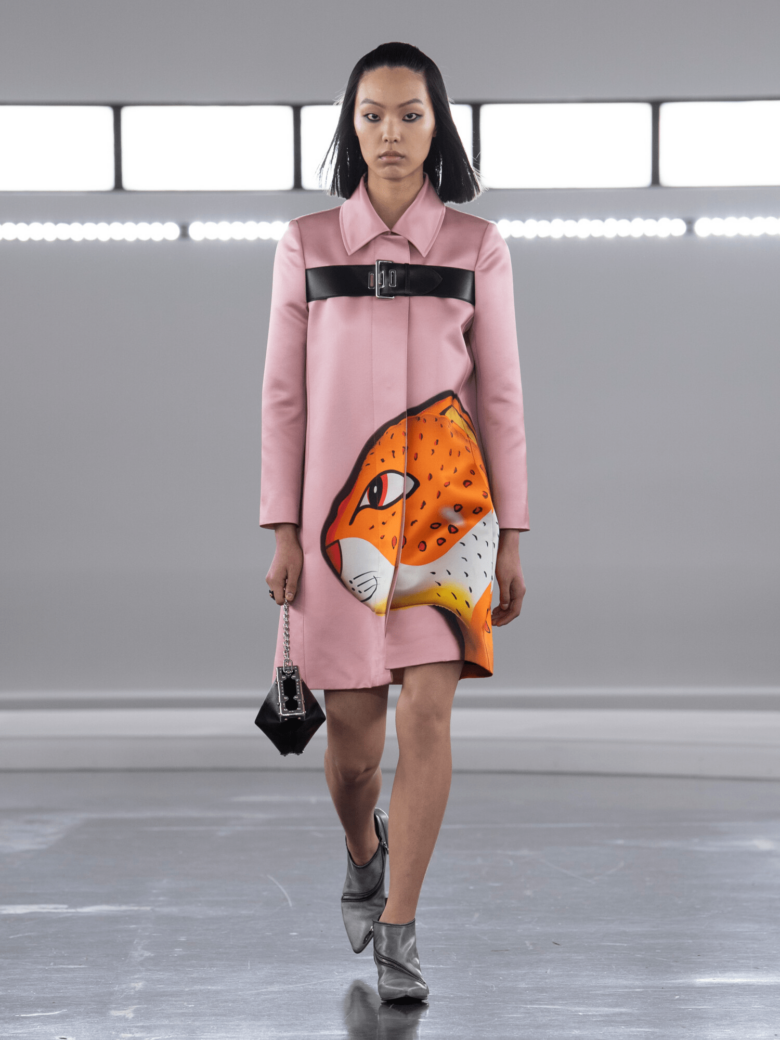Five minutes with Dream Wife: The pop-punk band on the importance of blending politics and humour
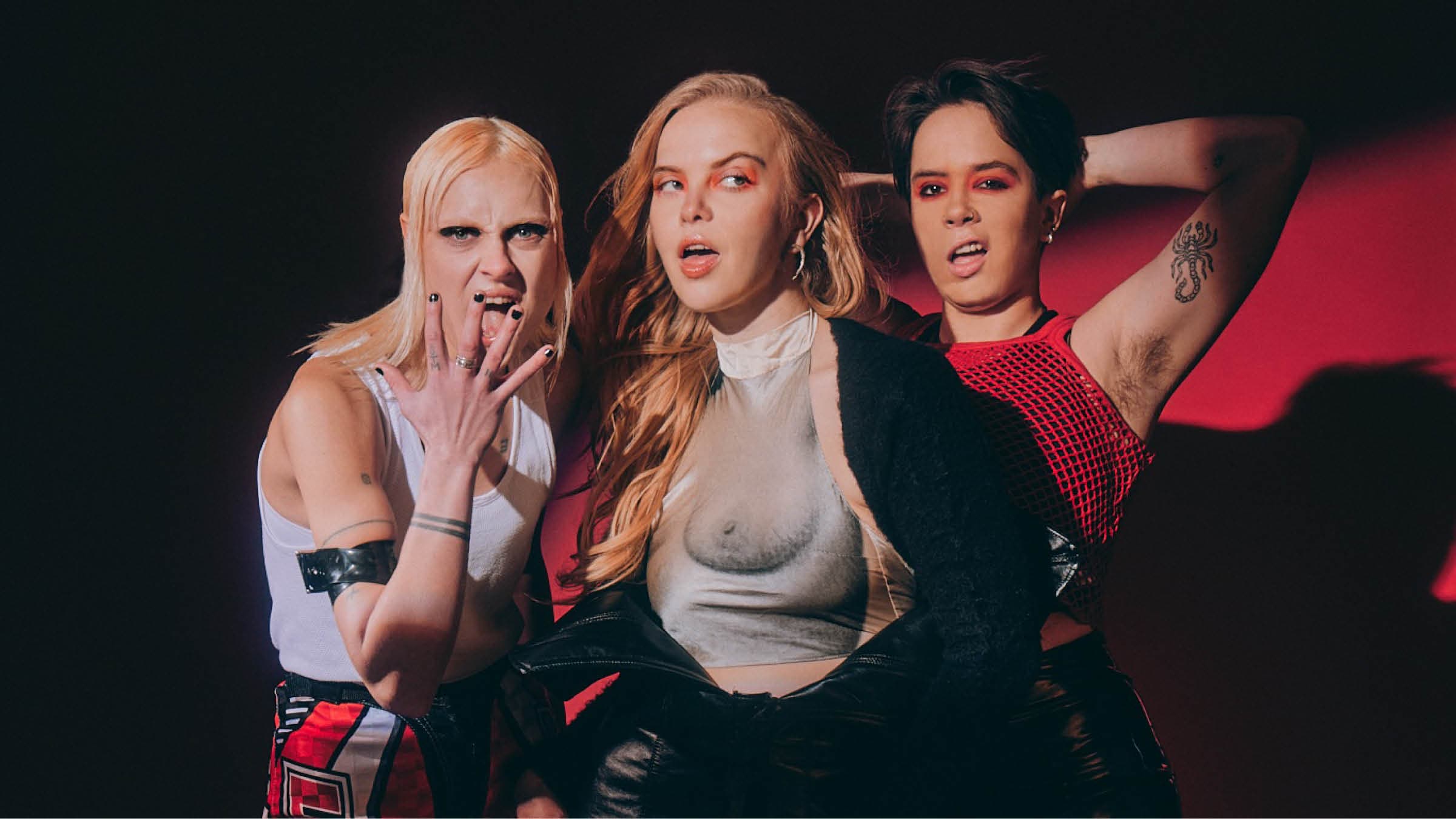
The London-based trio Dream Wife released their debut self-titled album a little over five years ago, with their sophomore album So When You Gonna… following in 2020. While that latter record was a success in the UK charts and named one of Rough Trade’s Top 10 Albums of the Year, hopes of performing it live were soon dashed by the pandemic. The release of their third studio album, Social Lubrication, this Friday (June 9th) sets out to recapture the centrality and joy of playing music live and experiencing it collectively.
The band — made up Rakel (vocals), Alice (guitar), and Bella (bassist) — initially formed in 2014 as a performance project while the three of them were studying at Brighton University, and have gone from strength to strength since, opening for the Rolling Stones at Hyde Park last year. The new album is entirely self-written and self-produced, and their lyrics are more cuttingly witty than ever. In the band’s own words, Social Lubrication is “hyper-lusty rock and roll with a political punch,” with a “healthy dose of playfulness and fun thrown in.” This perfect mix of politics and personal, of seriousness and humour, is what allows the band to get punk back to what it really is and should be. Not only do they skilfully borrow from the genre sonically and aesthetically, but they are committed to unapologetically pushing back against patriarchal systems, while understanding that fun, empathy, and community should never be forgotten or left behind. Here, HUNGER catches up with Dream Wife to discuss the upcoming album, their belief in speaking their minds, and the importance of collectively sweating to live music.
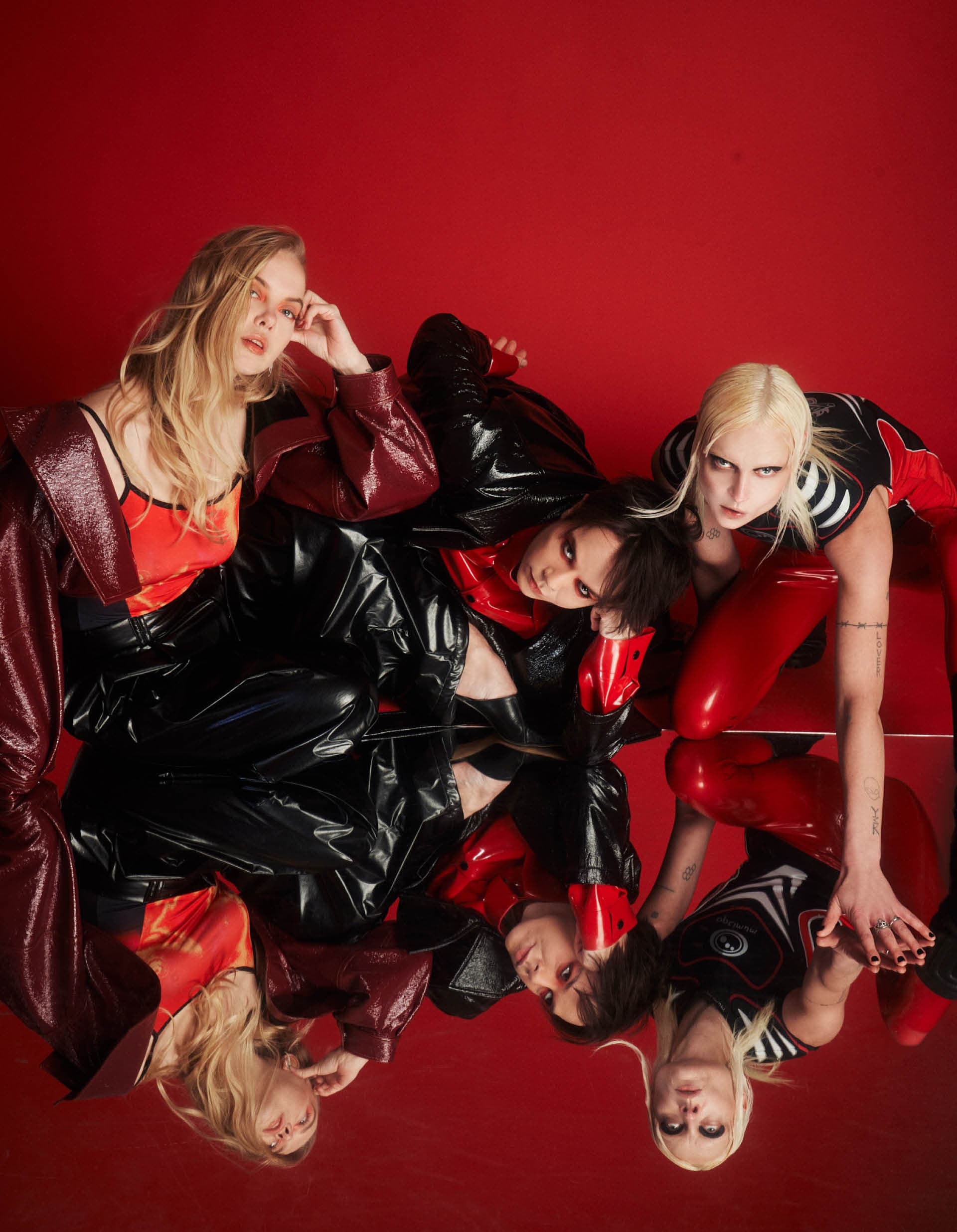
Where did the inspiration come from for the group’s name?
Bella: We landed on the name Dream Wife really early on – before we even had a first practice. As a name its evolved with us and taken on many different meanings throughout our time as a band. Initially it was a funny twist on the fantasy role women are often expected to perform or position they are deemed to occupy but as we have grown together it has become a real symbol for the unity of being in a band. We are each other’s wives! Committed to each other emotionally, creatively, logistically. Even contractually! Being in a band is so much like a family, like a marriage – you get to experience all the parts of life together and all the versions of each other in a very intimate and candid way.
You described your new album Social Lubrication as “politically punchy”, and speaking your mind is something you’ve never shied away from. Do you feel as though you still have a responsibility to be a voice for the voiceless?
Bella: All art is political when in the public sphere and we try to honour and respect the privilege of having a platform, with aim toward the collective good! I wouldn’t quite say we have a responsibility to be a ‘voice for the voiceless’ – that sounds like a saviour complex – but we do have a responsibility to honestly speak to our own experiences and views with understanding that we are not isolated in our struggles, that we are part of a tapestry of intersecting identities and groups. While at the same time understanding where it’s not our place to speak and passing the mic when appropriate.
Do you feel like more musicians need to take a similar approach?
Bella: Yes and no. There’s a lot of different ways to be political in art. Music that speaks to liberated sexuality or full spectrum emotions or intimacy or connection or just for dancing is political in that these forms of connection are actively rebellious. Or just taking up space as a LGBTQ+, POC, disabled, and/or neurodivergent person in music is powerful. People gotta do what they gotta do in their own sweet way. And in the same breath better not to get all your politics from pop songs!!
Obviously, being open politically has been a hallmark of your music for a long time, but was there ever a time where you weren’t so confident about putting so many of your beliefs out there?
Rakel: We made Dream Wife when we were friends at the end of our university days in Brighton and it was a way to jump out of our comfort zone, a way to travel and just make silly fun stuff with more of our friends. Before Dream Wife we had all been in bands but this is the first musical project where we felt we could fully express ourselves within a collective such a band. It hadn’t felt that way before for any of us. That trust and friendship that we had when we made this – we’ve built it up, and that has really allowed us to be more confident both in ourselves and with what we want to say, how we say it and why it matters to us. It’s so important to put your money where your mouth is and since the beginning, we’ve worked with various community led charities and uplifting our community is vital.
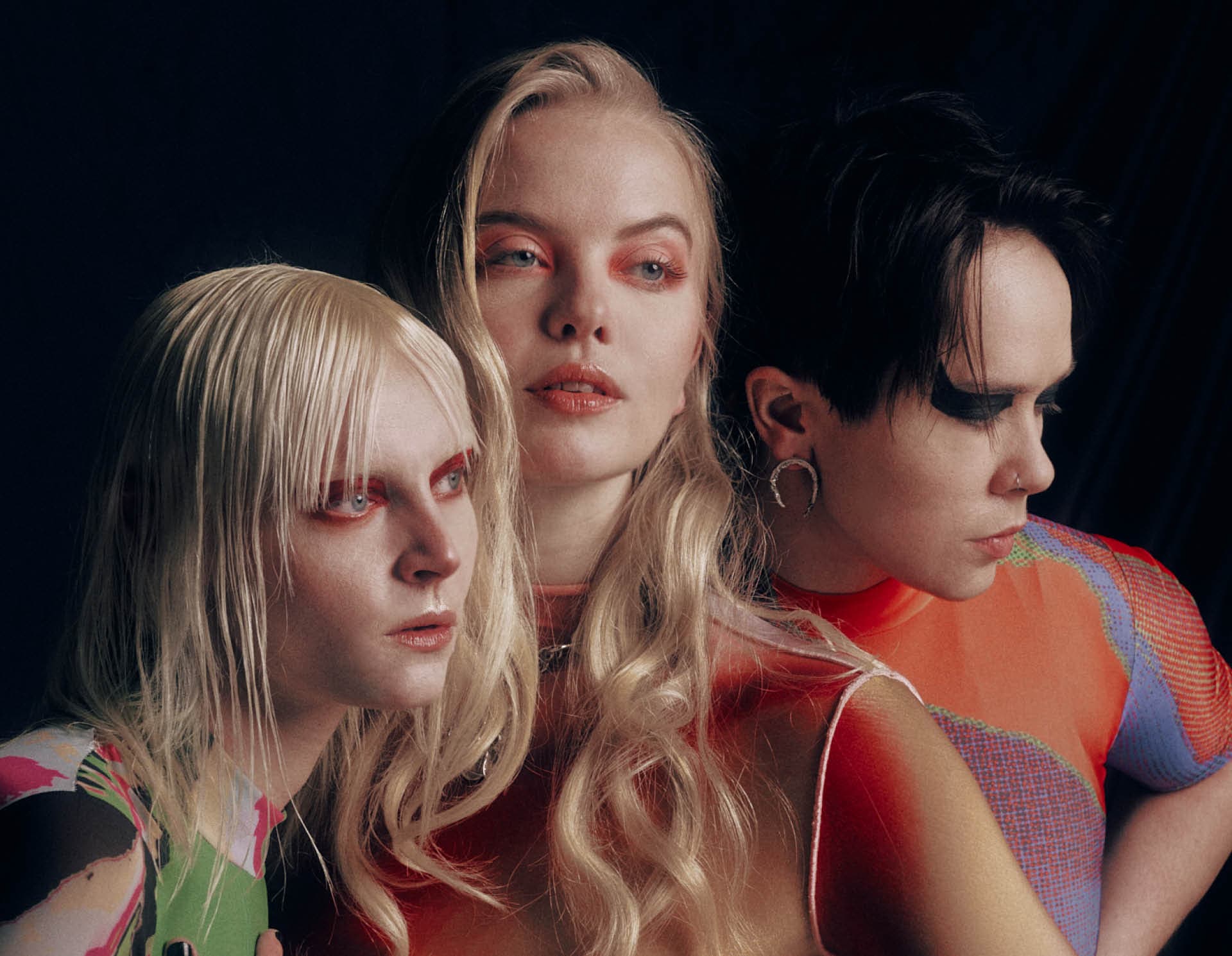
One thing you’re very vocal about is the need for improved representation of women and the LGBTQIA community within the music industry. What do you think still needs to be done to improve visibility for these individuals?
Alice: The change needs to be deeper than just surface level. It’s obviously great and good for there to be more diversity in artists on the front line, playing shows, in the public eye – however more change needs to happen behind the scenes and in the positions of power within the industry. Who is making the decisions and calling the shots within the music industry? Who is in control? We need to diversify the people pulling the strings at the top and making things happen behind the scenes to allow for meaningful change throughout the industry. The music industry needs to be uprooted at a deeper level than just a visible surface level change, which can often just be performative and a way to appear as though change is actually happening within the industry, when the majority is still cis white men at the helm, steering the ship.
You also have some fun-loving tracks sprinkled in, like ‘Hot (Don’t Date a Musician)’. Is having those moments of comic relief something you were intentional about?
Alice: Comic relief is 100 per cent part of our agenda! As the saying goes, ‘You have to make them laugh before you can make them cry!’ As a group of friends we do just have a lot of laughs, we are silly together, and our music encapsulates that too. It’s also important for us to acknowledge the place of a song like ‘Hot’ alongside a song like ‘Leech’, which is, from the off, a political statement-wielding beast. ‘Hot’ is a good time, poking fun at ourselves. At a live show it really pops off – the whole crowd screaming “hot” in unison is very, very fun. Moments like these and a track like ‘Hot’ stand tall in their own political sense – having fun as a political act, pleasure as a political act. To us a song like ‘Hot’ can be seen in a political light, albeit different from the vibe of ‘Leech’. ‘Hot’ is still its own political banger, we can be silly and have fun and in the same act be saying “fuck the system”.
Why shouldn’t you date a musician?
Alice: I just moved house, and let me tell you, it was a battle. Musicians tend to have a lot of literal baggage. For me it was basically moving a whole home recording studio, various audio toys, and AV equipment. My partner is very understanding, even though “musician” can, in my case, be an interchangeable term for hoarder.
Rakel: I fully support you if you want to date them/us, but heads-up, they are never home and have irregular eating hours.
The track ‘Leech’ explores the dark side of the industry and its gatekeepers – was there a particular experience that led to the creation of that song?
Rakel: Many shared experiences unfortunately. The lyrics to ‘Leech’ were written in one go, in a corner hunched over my phone in a festival field shortly after festivals were allowed once again at the end of summer 2021. ‘Hot’ was partly inspired by just walking around festival sites and seeing all these beautiful, hot friends and the overwhelming joy of being back together embracing live music – and ‘Leech’ explores the dark side of that. I remember walking around and bumping into people from the past that I was surprised to see were still holding their position of power in the music industry, and that feeling that nothing has changed after all that has happened these past few years. I was pissed off and didn’t wanna hold anything back and that’s how the lyrics came about. Musically it is also inspired by PJ Harvey’s album and mixing of ‘Rid of Me’. That tug-of-war between an eerie, whispery refrain smashed with a wall of sound is what we wanted to pour into this song. It’s not a comfortable pop song, it’s a statement.
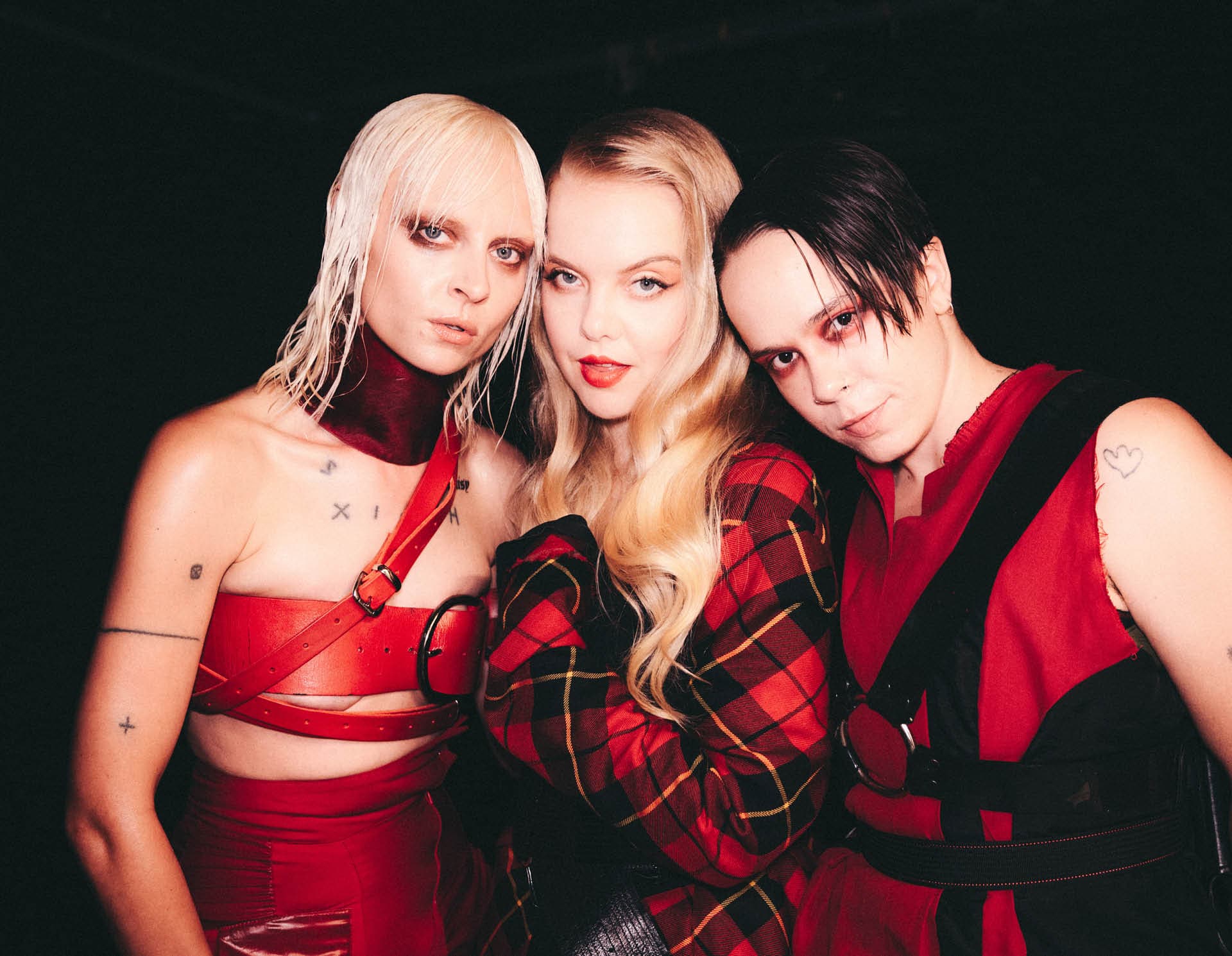
The album is entirely self-produced and self-written – is that something you feel is important in terms of keeping it as authentic as possible and your view?
Rakel: Having Alice taking the lead on this record was an incredible experience and putting our sound into our own qualified hands felt right for this album – who better knows your sound than yourself? We’ve been fortunate with the producers we have worked with in the past and it is always a collaborative effort making an album together. For this album we wanted to strip it back to a raw core. Three instruments, drums, guitar and bass and vocal. That’s how we play live – there’s no playback, there’s no additional players it’s just us four rocking out [they are joined by a drummer when touring] and that’s how we wanted the album to sound like – our live shows. We really come alive together as a band at our live shows. And we just wanted capture that in a pure sense on record! We recorded it in Nave Studios in Leeds, all in the same room. Often just using the same single take for the whole track. Perfectionism is boring to us. The magic comes from locking in together live and riding that wave through.
It’s been three years since the release of your last project. How do you feel you’ve evolved as artists since then?
Rakel: It’s wild, isn’t it? Our last record was released at the start of the pandemic and we never got to tour that record. When we started writing this record we wrote a bunch of songs that never made the cut for ‘Social Lubrication’ because frankly they were too sad. Sad ass songs. It was a sad time. It wasn’t until festivals started again where we found our stride with what we wanted this album to sound like, and we wanted it to sound raw, sticky, honest, and fun as hell. We would finish a festival show and go straight into our writing space running off the high of what we’d felt experiencing the joy of festival culture and live music. We’d try out new songs that we’d written the week before at a festival show and would go listen to their reaction and that’s how we’d form some of the song structures. Add a chorus there because they were singing that part back to us or cut or that bit because it would work better simplifying it. The audience’s reaction is a huge part of our songwriting so it’s the best way to see if a structure works.
You’ve also got your tour coming up later this year – how does it feel knowing that, since your debut in 2018, you’ve still managed to maintain longevity and a dedicated fanbase still coming out to support you?
Rakel: Well, we only got to tour that debut, and we toured it to the bone, I tell ya. We didn’t get to tour our second record due to the pandemic, so it feels pretty new and exciting to be going on this massive tour again. We’re very thankful that people connect with our music and touring is the highlight of being musicians for us. Getting to meet and connect with people IRL through a live show experience. That’s why we release albums – so we can tour them lol.
For anyone who’s never been, what can fans expect from a Dream Wife show?
Alice: Overheard in the crowd at the end of a DW show: “That was like a work-out in a sauna!” Be prepared to sweat, rock and roll!
Rakel: Yes, bring a towel. The best compliments I’ve heard from people is that they’ve met their best friends at a Dream Wife or their new bandmates. And that just fills my heart with joy that people go to our shows to find, dance, and mosh with other like-minded people.
What artists are inspiring you right now?
Alice: We get to support Le Tigre next week! and they were a band that really inspired us when we were starting out. Their ability to have so much fun with their music and be political at the same time has always been an inspiring combo to us. Having a good time as a political act – we are so down with that.
Rakel: I think I might faint when I meet them. They really got us through those early teenage years. My friend asked me the other day what our set list would look like, and I said probably just praising Le Tigre and telling the crowd how much they mean to us and hopefully get some songs in as well.
Do you have a specific goal in mind with your career?
Alice: Certainly right now, on the verge of releasing our third album, our goal is taking these new songs out around the world and sharing them with others. We have a lot of gratitude to the people who come down to our shows and support us, and to be able to share new music with them is a total joy – we can’t wait!
Rakel: More orgasms. For all. The special edition of the vinyl for ‘Social Lubrication’ that we made with Blood Records has this sleeve made of lube – so in case of an emergency.
